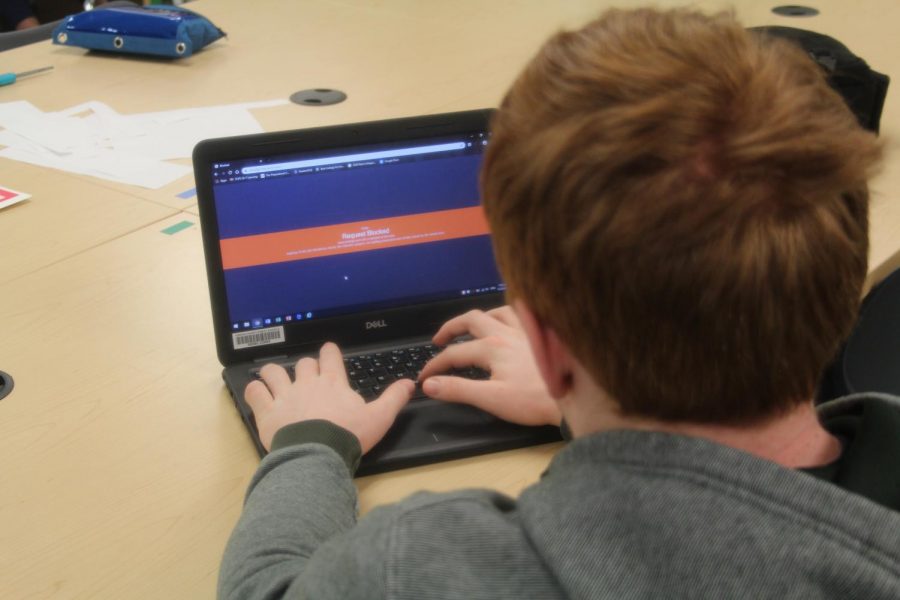A heated discussion
The county’s firewall proves itself a roadblock to many Langley students and staff
Langley’s tech-savvy policies are often a source of controversy, whether its the new school laptops or the increased presence of QR codes. One overlooked facet of Langley’s technological advancements are the enforcement of the county firewall, a network security system that prevents students, staff, and teachers from accessing potentially harmful, inappropriate, or illegal content on school devices or devices using an FCPS internet connection. In theory, this is a perfectly sensical and even crucial part of our school’s technology policy; some students and teachers, however, maintain their qualms about the shortcomings of the firewall.
Junior Conard Rasich has been troubled by the firewall when trying to use his computer to print school assignments at home.
“The firewall is not only ineffective but quite annoying,” Racich said. “They prevent the computer from downloading external software, and the problem with this is, if you’re a regular person, and you have a printer at home, printer drivers are unable to be installed. So basically you’re stuck with being only able to print, with this laptop, at this school.” The firewall prevents many varieties of software from being downloaded onto computers whether they are safe or not.
Lindsey Fisher, Langley’s technology specialist, provided some insight into the reason why some sites might be blocked.
“Because students have access to 1-1 devices at all times, the county wanted to make sure students would have access to things that eat up all the data, like netflix. If half the school’s sitting here watching netflix, that’s gonna be a problem, as far as bandwidth,” Lindsey said. “Overall, the goal is to keep the bandwidth moving or to keep everything secure.”
Fisher described the process of blocking and unblocking sites to be an uncertain ordeal.
“The things I find frustrating about the process is that if you’re a teacher or staff member and you want something to be unblocked you have to submit a form, and you don’t really know if it ever gets unblocked or not, you just have to keep checking it. It’s not like they send you a ‘Hello! This has been unblocked!’ it just kinda goes off into the great, wild nowhere. Hopefully it goes through, sometimes it doesn’t. You never really know.”
However, it’s not just students who find the firewall to be a problem. Mr. Pitrowski, a teacher at Langley who uses computers every day in his classroom, expressed discontent with the firewall as well, though acknowledged its usefulness.
“With the classes I teach, marketing, or even EPF, sometimes we’re talking about current things, or something I may think about or hear about on the news the night before, and I want students to go onto a site with an article or a video, and the site is blocked,” Pitrowski said. It’s not something that’s a great hindrance, but it can be an issue.”
It’s clear there are many issues with the firewall; however, in the balance between risk and reward, Pitrowski weighs in.
“It’s a tough question. I’ll answer it like this: I think it’s necessary. Whether does more good, or more harm, it depends on the situation,” Pitrowski said. For the most part, I’ll say that it’s necessary. I know that’s not a great answer, but, I’ll say that it’s necessary.”


